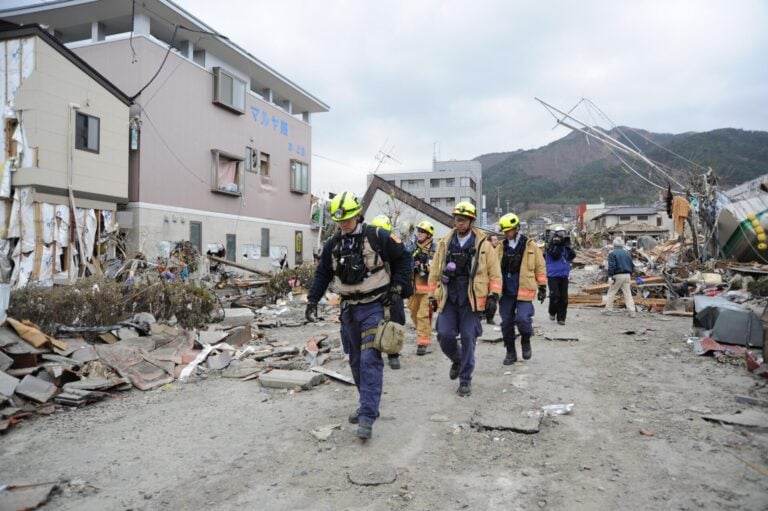
Living in Japan, we’re no strangers to earthquakes, but no matter where you live in the whole country, it’s essential to be prepared. So, let’s dive right in.
Understanding Earthquake Preparedness
I remember feeling my first quake. It was so scary I jumped out of bed and ran to the door cos I heard that you need to open it to make sure it doesn’t get jammed shut. It was actually such a mild earthquake that my students told me later in the day that they hadn’t even woken up… Over time, I’ve learned that preparation is the best antidote to that fear. Preparation involves three main steps: creating an earthquake kit, making a plan, and staying informed.
Creating an Earthquake Kit
Let’s start with your earthquake kit. There are some obvious supplies that everyone recommends: bottled water, non-perishable food, first aid kit, flashlights, batteries, and so on. But there are a few unusual items you might not have thought of that could prove extremely helpful in the aftermath of an earthquake.
- A whistle: This might seem odd, but it can be invaluable if you get trapped and need to alert rescuers to your location.
- Cash and coins: In the aftermath of an earthquake, ATMs might not be operational, and card machines might be down. Having a stash of cash and coins can be a lifesaver.
- A hardcopy map of your local area: With potential power outages, your smartphone’s GPS might not be reliable. Having a good old-fashioned paper map can help you navigate if needed.
- Gloves and sturdy shoes: There might be debris and broken glass. Protecting your hands and feet can prevent injuries.
- Comfort items: These are especially important if you have kids. A favorite toy or book can help your kids feel safe. And I’m not going to judge if you have a safety blanket yourself.
Making a Plan
This isn’t just about knowing the safest places in your home to shelter during a quake (although that’s important too). It’s also about knowing how to communicate with your family and how to get back together if you’re separated. If you don’t have your phone or the connection is out, how will you get in touch with each other. Decide on a meeting place and an out-of-town contact person everyone can call if you don’t have reliable service to say they’re safe. Remember, local wireless carriers might not work but wired phone lines might still be in operation, so make sure you at least have a piece of paper in your go bag with a few useful phone numbers on it.
Staying Informed
Lastly, staying informed is key. Most smartphones have alert features for natural disasters. Make sure they’re activated and you’ll get a loud beep when the meteorological agencies detect that an earthquake is coming. You usually only get a minute or so, but that will give you enough time to get to a safe place. You can also get a battery-operated or hand-crank radio to listen to news broadcasts if the power is out.
Earthquake Safety: During and After
During the earthquake, remember to “Drop, Cover, and Hold On” until the shaking stops. If you’re outdoors, move to a clear area away from buildings, trees, streetlights, and utility wires. If you’re driving, pull over and stay inside your car until the shaking stops.
Once the shaking stops, be careful of aftershocks. Check yourself and others for injuries. Use your phone only for emergency calls to keep the lines open for emergency services. Tune into your local news via radio or your smartphone for updates.
Preparing for an earthquake might not be the most fun thing to think about, but it can make a big difference when seconds count. With a well-stocked earthquake kit, a solid plan, and the right information, you’ll be ready to handle whatever comes your way.













